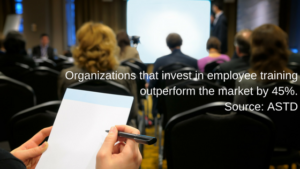Fall is the season for conventions in the real estate world. The busy summer selling season is winding down and salespeople and brokers have time to spend on meetings, education sessions, and visits to the trade fair. So, let’s put on a convention!
At my company, we tossed around the idea of having a mini-convention for a couple years, then got brave and decided to do it this year. The planning began months ago with visits to potential venues and calls to speakers regarding availability. When we finally settled on a date and reserved the facility, the real work began.
Finding speakers to present interesting, timely, and relevant material to our agents was not difficult. Finding speakers who were available on the date we needed them proved to be quite tough. Once we were able to determine who was available, we signed agreements as quickly as possible to secure the speakers for our date.
Then came the next question: Do we offer continuing education credit for the sessions, or not? Agents need to provide proof of a certain number of hours of continuing education credit each time they renew their licenses. By offering CE credit for the convention sessions, we provide an opportunity for the agent to get information and CE credit, and we give ourselves a marketing opportunity. Continuing education gives agents an added reason for attending the sessions when the need to know isn’t enough.
Promotion started about a month in advance of the convention. Registrations trickled in slowly, and we began to doubt what we were doing. Why weren’t they signing up to attend? Were we totally off the mark with our topics? We should have calmed down and waited patiently. Real estate agents are notorious for deciding at the last minute to register for anything. The registrations began to pour in about 10 days before the initial deadline, and continued to appear for a few days after that date (registration was kept open, but capped).
How can we measure success of such an event? The immediate feedback gives us a good idea of participants’ feelings about the day: Whether they liked the facility, thought the food was good, had a good time talking with friends and colleagues, and heard some good speakers. This is the “smile sheet” that tells us what their impressions of the event were. By all accounts, we got high marks for a good event.
The long term effect of the convention will be whether those in attendance apply anything they learned at the sessions they attended. We might be able to measure satisfaction with the event shortly after the event, but assessing the impact of the day will be a longer-term process. We’ll need to look at the attendees’ implementation of techniques and tools to increase their businesses as well as their production over a period of time to be able to determine if what they gained at the convention will have an effect.
Putting on a convention, even a one-day convention is a lot of work, but it is also immensely satisfying to see learners excited to try something new that they learned in just one day.


